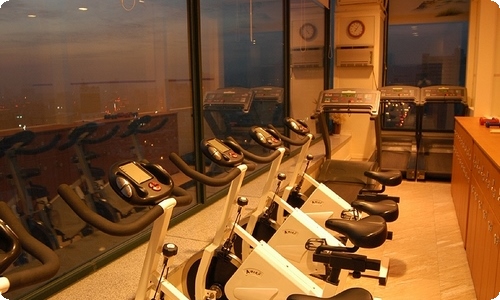
商务英语初级模拟问答试题提供练习
Unit 3
Social English 1
1. Listening When you meet someone for the first time and start up a conversation, it is important to find points of common interest so that the conversation can run smoothly. Listen to the five dialogues on the tape.
Decide if you think they are successful or not in making initial contact.
Dialogue 1
Dialogue 2
Dialogue 3
Dialogue 4
Dialogue 5
Now listen again and note down the answers to these questions.
Dialogue 1: Has the visitor been to Japan before?
Dialogue 2: Which hotel is the visitor staying in?
Dialogue 3: What tohttps://p.9136.com/0bmon interest do they find?
Dialogue 4: What tohttps://p.9136.com/0bmon interest do they find?
Dialogue 5: What tohttps://p.9136.com/0bmon interest do they find?
Listening task
Dialogue 1
A: Is this your first trip to Japan?
B: Yes, it is.
A: Do you like it here?
B: yes, it seems interesting.
A: Would you like another drink?
B: Thank you.
Dialogue 2
A: How was your trip?
B: Fine, thanks.
A: How do you find Tokyo?
B: Very interesting.
A: Which hotel are you staying in?
B: The Sheraton.
Dialogue 3
A: Is this your first trip to Japan?
B: Yes, but hopefully not my last.
A: I‘m pleased to hear that. Have you found time to see much?
B: Well, I visited the gardens.
A: Oh, are you interested in gardens?
B: Actually, yes, it‘s my hobby.
A: Mine too
Dialogue 4
A: Are you staying long?
B: No, unfortunately only a couple of weeks.
A: Business or pleasure?
B: Business, I‘m afraid. My company is setting up an office here in Tokyo.
A: Really? Where is your company based?
B: In Detroit, sort of north mid-west of the States.
A: Yes, I know it. I visited it two years ago.
B: Ah, really?
Dialogue 5
A: I believe you‘re in fashion.
B: Yes that‘s right- on the design side.
A: That‘s a coincidence. My wife‘s a fashion designer.
B: Oh, I‘d like to meet her.
A: You must come round to dinner one evening.
B: That would be nice.
A: Good, I‘ll fix it up later this week.
2. Presentation Successful conversation depends on finding a topic both people can easily talk about. One-way of reaching this point is to follow a number of steps until a tohttps://p.9136.com/0bmon interest is found. A typical sequence might be:
1. opening question
2. immediate answer
3. follow-up question
4. immediate answer + additional comment
5. next question or comment on tohttps://p.9136.com/0bmon interest
6. Answer or further comment on tohttps://p.9136.com/0bmon interest
Now look more closely at the typical sequence of conversation.
2.1 Opening question
Is this your first trip to________________?
How was your trip?
2.2 Immediate answer
Yes, it is.
Fine, thanks.
2.3 Follow-up question
Are you staying long?
Business or pleasure?
2.4 Immediate answer
No.
Business.
Note: These answers are not helpful in finding a common interest. You need to make an additional comment.
2.5 Additional comment
But hopefully not my last.
Unfortunately only a couple of weeks.
Business, I‘m afraid. My company is setting up an office here in Tokyo.
2.6 Next question
Have you found time to see much?
Really? Where is your company based?
2.7 Establishing tohttps://p.9136.com/0bmon interest
Are you interested in gardens?
Oh, I visited Detroit a couple of years ago.
That‘s a coincidence. My wife is in fashion, too.
3. Controlled practice
The following four dialogues are in the wrong order. Rearrange them to make a natural flow of conversation.
Dialogue 1
Really? What did you expect?
No, I‘ve been to the States before, but this is the first time in Atlanta.
So, what do you think of Atlanta?
Fine, I‘ll see what I can arrange.
Well, it‘s not what I expected.
There is a part like that. You must let me show you around.
Well, I suppose I thought it would be more traditional.
Is this your first trip over here?
Dialogue 2
I‘m sure. I hope to get back here again
That‘s a pity. There‘s a lot to see.
Good. Are you here on business then?
Are you staying long?
Really? That‘s interesting. What line are you in?
No, just a couple of days.
Yes, we‘re thinking of setting up an office here.
Dialogue 3
That would be nice.
That‘s interesting. My son is an editor on the local paper.
I believe you‘re in journalism.
Really? I expect I‘ll meet him.
Yes, that‘s right -on the editorial side.
Yes, what about coming round for a drink? I could introduce you to him.
Dialogue 4
Scotland. This time of year it‘s pretty cold.
A bit warmer than back home.
Well, if you do come across, you must visit us.
Oh, so where do you come from?
Yes, that‘s right. The best time to visit is in the summer.
I can imagine. I‘ve never been but people tell me it‘s very beautiful.
How do you find the weather here?
Maybe I‘ll get across next year.
-----------
课文注释及词汇讲解
try 试图
try to do sth. 尽力做某事
eg. We‘ll try to meet the customers‘ demands
我们将尽力满足客户的需求。
common interest 共同爱好
eg. Two strangers are trying to find topics of common interest.
两个生疏人正在尽量寻找双方都感爱好的话题。
trip 旅行
eg. This is my second trip to the United States.
这是我第二次来美国。
Do you like it here?
你喜欢这儿吗?
注重:
代词it在这里没有什么实际意义,但必不可少。因为here为副词,like为及物动词,所以需要有it做宾语。
How do you find Tokyo?
你觉得东京怎么样?
也可以说成 What do you think of Tokyo?或 How do you like Tokyo?
interesting 令人感爱好的'
eg. The film is interesting.
这部电影很有趣。
Interested 感受到有爱好的
Eg. I‘m interested in the film.
我对这部影片感爱好。
another 另一(个,件)
eg. Would you like another cup of tea?
你还要一杯茶吗?
I need another day to finish the work..
我还需要一天才能完成工作。
stay 停留,暂住
eg. Are you staying long?
你逗留的时间长吗?
Which hotel are you staying in?
你住在哪家旅馆?
注重:
stay为不及物动词,所以在第二个例句中一定要接介词in ,这样才能带宾语。
unfortunately 令人遗憾,运气不好地
eg. Unfortunately, I can only stay for a week.
真遗憾,我只能呆一周。
Business or pleasure?
出差还是度假?
本句为 Do you come here for business or for pleasure?的省略句。在口语中经常用省略句。
I‘m afraid 我恐怕,恐怕是【有时可以不直译】
该句式用于缓和语气或婉转地表达想法,也可以用于表示不肯定的语气。
Eg. I‘m afraid I can‘t come on Friday afternoon, because I will be having a meeting then.
因为要开个会,周五下午我恐怕不能来。
set up 建立,设立
eg. We are going to set up a new plant in this area.
我们打算在这个地区建一座新工厂。
be based 总部设在
eg. Where is your company based?
你们公司的总部设在哪儿?
sort of 有点,稍微 【多用于口语】
eg. I‘m sort of surprised.
north mid-west of the States 美国中西部的北部
mid-west 中西部
注重:
在英语中东北、东南、西北、西南分别为northeast, southeast, northwest, southwest, 与汉语习惯不同。
be in fashion 【在本课指】从事时装行业;(通常指)时髦,流行
eg. I‘m in fashion-on the design side.
我从事时装行业-搞设计的。
Mini-skirts were in fashion last summer.
去年夏天流行迷你裙。
coincidence 巧合
eg. You are also from New York? That‘s really a coincidence.
你也从纽约来?真是太巧了。
fix up 安排,定好(时间、地点等)
eg. Let‘s fix up a date to have dinner together.
我们定个日子一起吃饭吧。
traditional 传统的
eg. I thought Atlanta world be more traditional.
我原以为亚特兰大会更加传统一点儿。
注重:
这里 I thought 为过去时,表明我原以为,现在不这样认为了。若用了 I think则意味着我一直这样认为,现在也是。
show sb. around 带某人参观
eg. The visitors are shown around the new plant by the director himself.
来访者由厂长亲自带着参观新工厂。
That‘s a pity.
真可惜。
line (一般在商务英语中)行业
eg. What line are you in ?
你从事什么行业?
local papers 当地的报纸
paper是newspaper的省略说法。Paper当报纸的意思讲时是可数名词,此处的复数形式表明是各种各样的报纸。




